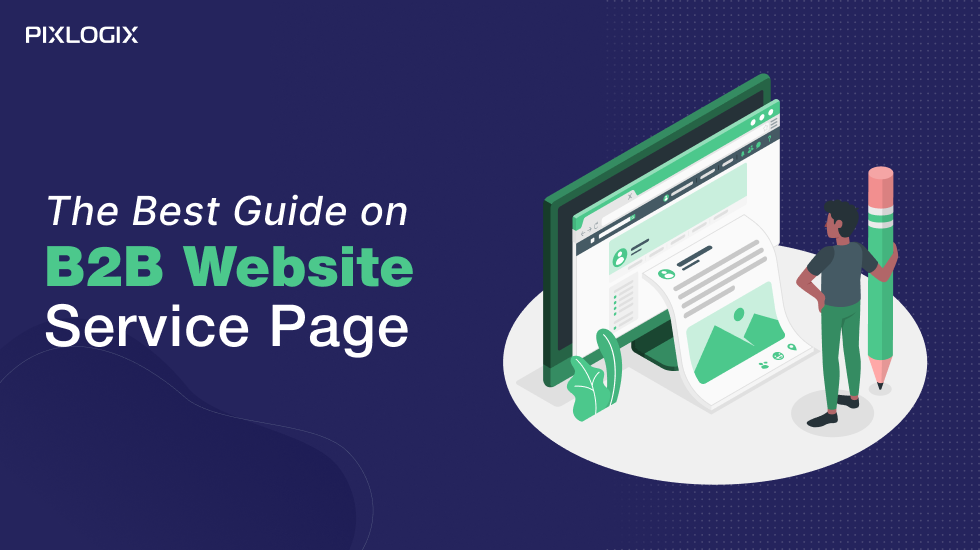10 Reasons Why Website Maintenance is Necessary

- Last Updated On September 30, 2024
- 12 min read
Technology is evolving like a rocket. To stay relevant in cyberspace, you always need to maintain your website speed and performance. The next door, for keeping your website secure and user-friendly, website maintenance is the secret sauce.
So, you want to build a business website like that?
Hence, read this blog until the end to get the most accurate and up-to-date information regarding why website maintence is necessary.
Key Takeaways
- What is Website maintenance?
- What are the benefits of website maintenance?
- How often should you do website maintenance?
- Where to find experts for website maintenance?
- Some general FAQs about website maintenance?
- That will take you to the next level.
So, stay till the end.
What is Website maintenance?
Website maintenance means checking a website for issues and errors and keeping it updated, secure, and running smoothly. This involves updating software, such as front-end, fixing broken links, speeding up, and making it compatible across the relevant network browsers.
Maintenance improves user experience and SEO and prevents potential security breaches. It’s important to keep the website relevant and efficient, whether it’s commercial, informational, or entertainment-based. Regularly maintained websites build user trust and encourage repeat visits and engagement.
The Crucial Role of Why Website Maintenance is Necessary
Here are ten compelling reasons why website maintenance is necessary and crucial for the success of any online endeavor.
#1: Ensuring Security
Security is the most critical reason for regular website maintenance. Cyber threats continually evolve, and outdated data can leave your website vulnerable to attacks.
According to Forbes. “Between 2021 and 2023, data breaches rose by 72%, surpassing the previous record.”
Hackers often exploit security weaknesses in unmaintained websites to steal data, install malware, or cause other damage. So, maintaining your website includes installing updates for the content management system (CMS), themes, and plugins. Many updates address security flaws that could otherwise be exploited. Additionally, regular backups ensure you can quickly restore your website to its previous state if something goes wrong.
#2: Improving Performance
Website performance, including load times and responsiveness, directly affects user experience and SEO rankings. A slow website can frustrate visitors, leading to higher bounce rates and lost business opportunities. Regular maintenance tasks can significantly improve your website’s performance.
Regularly checking for and fixing broken links, ensuring server performance, and updating hosting plans to accommodate increased traffic can also enhance your website’s overall speed and reliability. A well-maintained website offers a smooth, fast, and enjoyable user experience, which can help keep visitors engaged and reduce bounce rates.
#3: Enhancing User Experience
A positive user experience (UX) is crucial for retaining visitors and converting them into customers. Regular website maintenance helps ensure that all features and functionalities work correctly, providing a seamless experience for users. This includes checking and fixing forms, links, navigation, and interactive elements.
Maintaining an intuitive and easy-to-navigate structure is essential. Over time, content may need to be reorganized or updated to reflect changes in your business or industry trends. Regularly refreshing your content and design can make your website more appealing and user-friendly, encouraging visitors to stay longer and engage more deeply with your site.
#4: Boosting SEO Rankings
Search engines prioritize websites that offer a good user experience, load quickly, and are secure. Regular maintenance directly impacts these factors and your search engine optimization (SEO) efforts. Keeping your website updated, fixing broken links, and ensuring fast load times improve your chances of ranking higher in search engine results.
Additionally, search engines favor websites that regularly update their content. Maintaining a consistent schedule of content updates, such as blog posts, news articles, or product updates, signals to search engines that your website is active and relevant. This can lead to better visibility and higher organic traffic.
#5: Ensuring Compatibility with New Technologies
The digital landscape constantly evolves, with new technologies and trends emerging regularly. Browsers, devices, and operating systems are continually being updated, and your website needs to be compatible with these changes. Regular maintenance ensures your website remains functional and accessible across all platforms and devices.
This includes testing your website on different browsers and devices to identify and fix compatibility issues. Ensuring your website is mobile-friendly is particularly important, as more people now access the internet via smartphones and tablets. Keeping up with the latest technological advancements can provide a competitive edge and ensure all users have a positive experience on your site.
#6: Maintaining Professionalism and Credibility
Your website is a reflection of your brand and business. A poorly maintained website with broken links, outdated information, or slow loading times can damage your credibility and professionalism. Visitors are likely to question the reliability of a business that cannot maintain its online presence.
Regularly updating content, ensuring all features work correctly, and maintaining a modern, visually appealing design are essential aspects of website maintenance. These practices help build trust and confidence in your brand, encouraging visitors to engage with your business and become customers.
#7: Facilitating Business Growth
Your website needs to evolve as your business grows to accommodate new products, services, and customer expectations. Regular maintenance allows you to scale your website in line with your business growth. This includes adding new functionalities, expanding your content, and upgrading your hosting plan to handle increased traffic.
By continuously improving and expanding your website, you can better serve your existing customers and attract new ones. A well-maintained website can adapt to changing business needs, market trends, and customer preferences, supporting your long-term growth and success.
#8: Compliance with Legal and Regulatory Requirements
Websites must comply with various legal and regulatory requirements, such as data protection laws (e.g., GDPR), accessibility standards (e.g., WCAG), and industry-specific regulations. Failure to comply with these requirements can result in legal consequences, financial penalties, and reputational damage.
Regular website maintenance ensures your website complies with the latest laws and standards. This includes updating privacy policies, ensuring data protection measures are in place, and making your website accessible to all users, including those with disabilities. Staying compliant protects your business and demonstrates your commitment to ethical practices and inclusivity.
#9: Maximizing Return on Investment (ROI)
Creating a website involves significant time, money, and resources. To maximize the return on this investment, ensuring that your website continues to deliver value over time is essential. Regular maintenance helps keep your website performing optimally, attracting traffic and generating leads or sales.
By proactively addressing issues, updating content, and improving functionalities, you can ensure that your website remains an effective tool for achieving your business goals. This ongoing investment in maintenance pays off by enhancing user experience, boosting SEO rankings, and ultimately driving more traffic and conversions.
#10: Staying Ahead of Competitors
Maintaining an up-to-date, secure, and high-performing website in a highly competitive digital landscape can provide a significant advantage over competitors. Businesses that neglect website maintenance risk falling behind as their websites become outdated, insecure, and less appealing to users.
Regular maintenance ensures that your website stays current with industry trends, technological advancements, and customer expectations. By continuously improving your website, you can differentiate your business, attract more visitors, and convert them into loyal customers. Staying ahead of competitors requires a proactive approach to website maintenance and a commitment to delivering the best possible online experience.
Some General FAQs Related to Website Maintenance
Why is website maintenance important?
As mentioned earlier, Website maintenance is vital for ensuring security, optimizing performance, and providing a seamless user experience. Regular updates prevent vulnerabilities, fix bugs, and keep the website running smoothly, which helps retain visitors and improve search engine rankings.
How much does website maintenance cost?
Basic sites may incur minimal costs, while more significant, more complex sites require a higher investment for comprehensive maintenance and updates. The cost ranges from $5 to $5,000+ per month, depending on the website’s complexity and specific needs. To learn the accurate cost factor of the Website’s maintenance services, feel free to reach out to an expert.
How long does website maintenance take?
The duration of website maintenance varies. Routine tasks like updates and backups take a few hours each week, while more extensive updates or problem-solving can take several days or weeks, depending on the issues and the website’s complexity. You can contact website maintenance services providers and ask them about the time that fits your unique needs.
How often do you need to do website maintenance?
Pixlogix’s experienced tech professionals suggested conducting a few essential website maintenance factors regularly to ensure optimal functionality and security. From monthly optimization to routine maintenance activities, you get the best team for your website’s unbreakable progress.
Remember, consistent maintenance ensures the website remains secure, up-to-date, and user-friendly. So, plan it properly to maintain your business growth.
What does website maintenance include?
Website maintenance services include regular updates, security patches, backups, bug fixes, performance optimization, and content updates. It ensures the website remains functional, secure, and up-to-date, providing a better user experience and maintaining search engine rankings.
Who Does Website Maintenance?
Web developers, IT professionals, or specialized website maintenance agencies typically handle website maintenance services. These experts ensure the site runs smoothly, stays secure, and remains updated, addressing any issues promptly to keep the website in optimal condition.
Conclusion
In summary, neglecting website maintenance can lead to various issues, from security breaches to poor user experience, ultimately affecting your bottom line. Regular maintenance helps maintain professionalism and compliance with legal requirements, and maximizes return on investment. Moreover, it enables businesses to stay ahead of competitors in an ever-evolving digital landscape.
Investing in professional website maintenance services to get significant long-term benefits is a smart option. Remember, a well-maintained website is a powerful marketing tool and a testament to your commitment to quality and customer satisfaction. Make website maintenance a priority, and your business will reap the rewards of increased traffic, higher conversions, and a more substantial online presence.
Samir Bhimbha
Samir Bhimbha is the Founder & CEO of Pixlogix Infotech Pvt. Ltd. which offers web and app solutions to fulfill business's online needs and help to improve their online presence with many clients in the USA, Europe, Australia, and more. He is a skilled entrepreneur, web designer, developer, and team leader who can handle every situation. With 15+ years of experience in UX/UI design and web development, he is leading a team of IT professional talents.
Related Post
Get in Touch Now!
Have a word with our expert consultants about your next project to get suggestive guidance & proposal.
Sales Inquiry
Chat with us about your project for a custom solution and quote.









